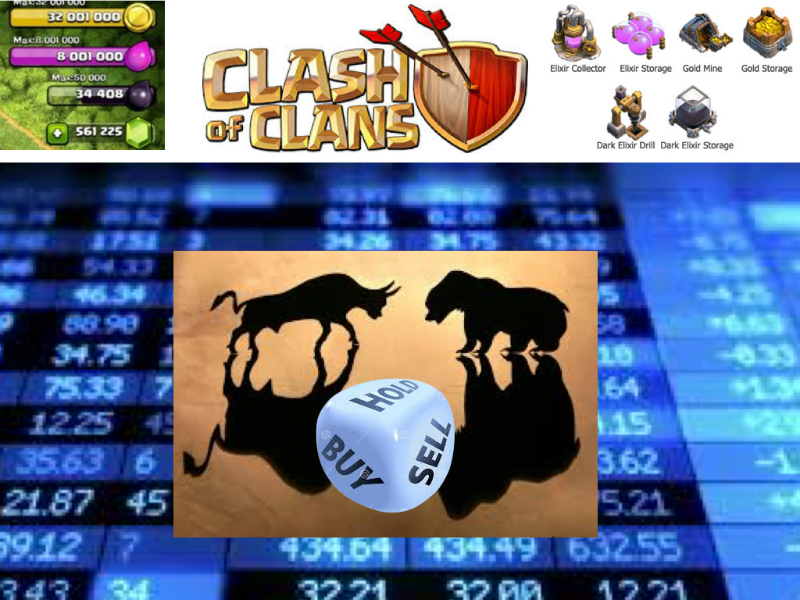
My son recently asked me about some shares that we have bought as an investment for him and his sister. He asked me why we had bought shares and not just put the money in a bank account. I explained to him about risk and the different options that are available for investing money.
I asked him if he had R100 would he invested in the stock exchange or would he place it in a bank account. His response was that he would split the money with some on the stock exchange and some in his bank account. The conversation then evolved into a discussion of diversification and the creation of a portfolio of investments covering industries, risk profiles, and expected returns.
The conversation took about 20 minutes while we were driving in the car. As we pulled into the driveway he said this to me: ”Dad, do you know where I learned all of this?” He went on to explain that he learned these concepts through managing elixir and gold in the game Clash of Clans.
One day he upgraded a part of his village used up all of his available resources in the upgrade. Consequently, he was not able to play anything else while the upgrade to his townhall was happening. Since then he has learned to always keep some resources in reserve, as cash, and to spread his upgrade activity across multiple areas. This spread of investments, and activity, allows him to keep upgrading his village and carry-on playing while this happens.
I thought I had taught him something but all had actually done was give him adult words for skills he had already learned playing a computer game.
What should we learn from this to improve our interactions with digital natives?
- Even though they may not use the right words that doesn’t mean they don’t know what to do.
- Age is not a limiting on factor when we can learn skills.
- We should take the time to have unstructured conversation to find out what they really know.
- Part of our role as leaders is giving digital natives the correct vocabulary for the skills they already have. This will enable them to be more effectively integrated memers of our teams.
- We should first check if digital natives have skills to do a task before we assume that they don’t, and then send them on irrelevant training programmes.
- The world is becoming more and more unconventional and the way things used to be is, increasingly, not be the way they will be done anymore.
It was humbling to realize that I hadn’t done the teaching that I thought I had. But, it is also gratifying to realize that digital natives are learning in ways and in places I have not considered before.


